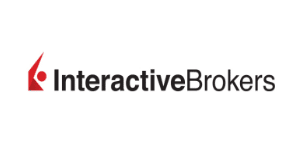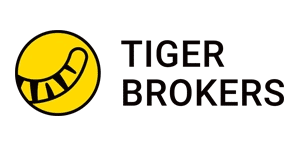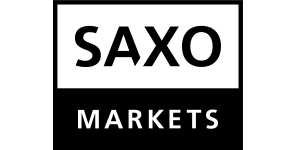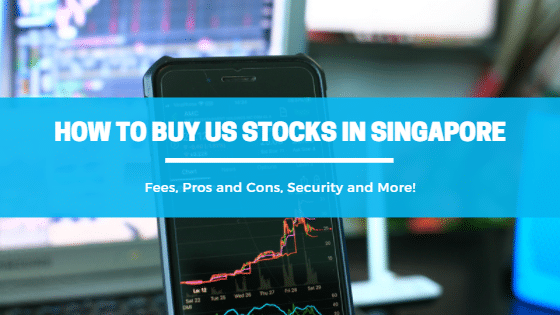If you’re betting on the extra liquidity or accessibility found in US or foreign stocks, and if you have any interest in buying those in Singapore, this quick “crash course” on how to invest in foreign stocks in Singapore should be more than enough for you.
By the end of this guide, you should have a good understanding of how to buy foreign stocks in Singapore, the best online brokers to do that through, and all of the costs that may be involved. Plus, you’ll have many of your burning questions about foreign stocks answered in the FAQ section. So, keep on reading!
Why buy U.S. Stocks?
The United States' financial market is the largest, most accessible, most liquid, and most transparent in the world. This market offers foreign investors in Singapore a one-of-a-kind investment opportunity due to its market value, transaction volume, and number of listed firms.
When we say ‘US stocks’, we may think that investing in US-listed stocks is like investing only in the country’s domestic economy, but in fact, you’re participating in the global economy. The financial market in the United States is the largest, most accessible, most liquid, and most transparent in the whole world. This market offers non-US investors with unique investment opportunities due to its market value, transaction volume, and number of listed firms.
The stock markets in the United States are home to the world's largest concentration of wealth, the NASDAQ and The New York Stock Exchange together make up the world's deepest financial exchange. The markets in the United States are also the most active in terms of turnover, which means that your chances of finding a buyer or seller for any stock are much higher than in any other markets.
Brands that are used every day in Singapore are among the top 10 US stocks on the S&P 500 list, which are:
- Apple (NASDAQ: AAPL)
- Amazon (NASDAQ: AMZN)
- Alphabet (NASDAQ: GOOGL)
- Meta (NASDAQ: FB)
- Johnson & Johnson (NASDAQ: JNJ)
- Microsoft (NASDAQ: MSFT)
- Visa (NASDAQ: V)
- Procter & Gamble (NYSE: PG)
While these large firms are on the US stock market, they’re mostly multinational corporations with products sold all over the world. Plus, they have no geographical restrictions since they’re primarily big tech companies.
The stock markets in the United States are home to the world's largest concentration of wealth, the NASDAQ and The New York Stock Exchange together make up the world's deepest financial exchange. The markets in the United States are also the most active in terms of turnover, meaning that your chances of finding a buyer or seller for any stock are much higher.
For all of these reasons, the US stock market is the one of the best ones you can invest in, so if you’re keen to know how to start investing in the US stock market in Singapore, read on as we break down our top 3 industry-leading trading platforms for US stocks in Singapore.
1. Best Overall: Interactive Brokers Singapore

Interactive Brokers Singapore is our top pick for their wide range of markets with access to 135+ global markets. Their premier technology is above industry average, trading and financing costs are low. Interactive Brokers offers free trading tools, education, award winning platforms, over 100 order types, and industry leading execution.
IBKR is regulated by the Monetary Authority of Singapore (under the Licence No. CMS100917), and listed on NASDAQ. Globally they have more than 1.5M client accounts and execute 2.26M Average Daily Revenue in trades.
Singapore investors get access to stocks, options, forex, bonds, futures, funds through one integrated account.
Investors get access to a range of educational resources, including exclusive webinars, Traders Academy, Traders Insights, and IBKR Quant blog.
We pick Interactive Brokers as the best broker for foreign stocks in Singapore.
2. Runner Up: TD Ameritrade

If you’re looking for a low-commission online broker to trade US stocks in Singapore, TD Ameritrade is a great option for you. TD Ameritrade is a well-known, award-winning online broker that offers low-cost access to markets in the United States. However, the broker has a limited product offering, providing only ETFs, options, futures, and stocks. However, they’re the most popular ones, which the majority of traders look for.
With TD Ameritrade, you'll have access to 5,000+ listed securities across numerous markets. They also offer 50+ futures products, all of which have been selected for liquidity.
You’ll most definitely like Thinkorswim on TD Ameritrade, which is a feature-packed, user-friendly trading platform that was founded in 1999. It features high-quality educational material from industry experts, virtual trading to test your trades, multiple help channels, and robo-adviser-driven features for traders who look for passive investing. It’s free of charge and suitable for both novice and experienced traders. Their graphs, scanners, and filter studies are among the best in the business.
Thinkorswim is available in 3 versions: web, desktop, and mobile. All of these versions are equally reliable and feature-rich, making executing trades, conducting research, and setting watchlists, a breeze.
The superb array of educational material provided by TD Ameritrade is another advantage for newbies. You get to choose from a variety of educational content, including articles, webinars, courses, and quizzes. And in case you’re into learning at your pace, TD Ameritrade organizes content by skill level.
TD Ameritrade also boasts great customer support that gives you informative answers of most, if not all, of your inquiries. You can get answers to your questions via email and Whatsapp, in addition to the standard 24/7 phone assistance. They also have a comprehensive FAQ section that answers the majority of your questions.
3. Best Trading Costs: Tiger Brokers

Tiger Brokes has established a reputation in Singapore as one of the cheapest trading brokers with US stocks. Tiger Brokers is an excellent trading platform for both newbies and experts, with access to key global markets, minimal trading costs, live US and Singapore quotes, real-time stock quotations, user-friendly mobile app, and prompt 24/7 customer support.
Tiger Brokers is one of Singapore's cheapest online brokers, with commission prices of 0.03 percent that beat out Saxo Markets, which charges a 0.08 percent commission fee with a minimum of S$5 per trade.
Tiger Brokers' market access isn't as extensive as that of other brokers such as Saxo, but it does include popular markets such as the United States, Hong Kong, Australia, and China. If you opt to trade on the Hong Kong market, you'll find that the commission rates are among the lowest accessible.
The broker provides 2 types of investment accounts: Margin Account and Cash Account. For each, your eligibility is determined by your age. If you're an 18+ student or 65+ trader, for example, you may be eligible to open a Cash Account, which allows you to trade stocks exclusively with cash without restrictions on the number of T+0 deals you can make.
Applicants between the ages of 21 and 65 can apply for a Margin Account. Margin trading, short selling, and futures trading are all possible with these account types, which offer intraday leverage of up to four times and overnight leverage of up to two times.
You’d probably also be happy to hear that if you invite a friend to register an account with Tiger Brokers, you'll get 5 commission-free trades. Hurray!
4. Saxo Markets

Saxo Markets is one of the best-known online brokers for both the US and international stock markets. It excels at providing its clients with broad market access, low trading fees,, and an easy-to-use interface.
Saxo Markets provides you with access to domestic and international stock markets, as well as bonds, CFDs, ETFs, futures, FX, equity, and contract options, making this broker an excellent choice for clients who wish to buy multiple assets via online brokers.
Saxo Markets offers new account plans for clients: Bronze, Silver, Gold, Platinum, and Diamond. High tier plans provide lots of benefits in exchange for a fee on a monthly basis, while the Bronze plan doesn't have any fees. Low commissions, no custody fees, and free live prices on US, SG, and other exchanges, are some of the benefits you may get.
Plus, Saxo Markets is running a welcome promotion in which new users will be immediately upgraded to the Gold Plan. This means that new users will benefit from a monthly $15 free commission credit, a $2 commission on US stocks and SG stocks, and a $88 bonus commission credit to be used during the first month. Finally, the Gold plan includes free live price data for equities in the United States , the European Union , the United Kingdom , and Switzerland.
This is particularly great for you if you wish to trade internationally because it’s not only cheap for you to do so, but you’ll also have access to up-to-date market information.
The online broker charges only 0.08 percent for Singapore stock trading (minimum S$5), compared to 0.22 percent on other platforms. It also charges less for foreign trades than the industry average and provides you access to 60 exchanges across the globe, including the United States.
You might also be happy to hear that, unlike some other low-cost brokers in the industry, Saxo Markets doesn’t have a monthly inactivity fee, making it suitable for both long-term and active traders.
Although Saxo Markets offers attractive fees and a broad range of services, traders who trade only overseas or US stocks can sometimes find lower commissions on other online brokers. However, Saxo Markets's fees consistently outperform strong competitors, making it the best alternative for many traders in Singapore.
Pro tip: SingPass allows you to sign up right away.
How to Buy Foreign Stocks in Singapore: 3 Easy Steps
Buying foreign stocks is pretty much the same as buying local stocks, except your custodian account is held with your online broker. Most Singapore brokers offer access to international market through your online account.
Investing in foreign stocks in Singapore isn’t that complicated. You only have to follow these three steps:
Step 1: Create a Trading Account with an Online Broker
The US stock market is one of the best foreign markets you can invest in. To start investing in US stocks, you'll need to open a brokerage account with access to the US stock market. Online brokers are your ideal option to trade in the US stock market, but not all online brokers are the same, so you must do your research first before deciding which one you’ll trade with.
You may be more familiar with the names and reputations of the companies in Singapore, but when investing in foreign stocks, you want to make sure you understand and are comfortable with the foreign companies you're investing in, whether they're based in the United States, China, Germany, or anywhere else.
If you’re keen to learn about brokers through which you can trade US stocks in Singapore, make sure to check out our top 3 industry-leading trading platforms for US stocks in Singapore. Once you've decided on an online broker, go to their website to begin the process of opening and verifying an account.
Step 2: Fund Your Online Trading Account
Once everything is set up, it’s time to fund your trading account in order to start trading. Before leaping into funding your trading account, you should keep in mind the number of shares you wish to buy as well as their cost. It’s also a good idea to have slightly more money in your trading account than you'll need, just in case of any fees that may apply.
Step 3: Start Trading US Stocks
After funding your online trading account, you’ll be welcomed by many foreign stocks to choose from. As with local stocks, you want to have an in-depth understanding about the US stocks you're trading. If you want to buy specific US stocks, start by analyzing the S&P 500's top 10 businesses. Apple, Meta, Google, Amazon, and other well-known companies will all be present on the list.
We recommend you spend some time learning about trading US stocks before you dive in and potentially make wrong decisions. This means that you should have a good understanding of each company's history, operations, financials, and future plans. We also recommend that you try out stock screeners, through which you can learn more about the companies by looking at their financial statements and economic moats, which will lead you to the best US stocks to trade in.
- Pro tip: stock-picking in the United States can be an exhausting process because there is so much research and news to keep up with. ETFs are better at minimizing the hassle.
Costs to Keep in Mind
Besides commissions and fees, there are other inevitable costs that you should be aware of when trading US stocks in Singapore. Plus, funding your account can be a prerequisite to get some rewards and bonuses from the broker.
- Forex Rates
Looking at the Singapore dollar (SGD), the SGD/USD exchange rate gives you the amount of USD that you’ll get for each Singapore dollar that you convert. For example, an SGD/USD exchange rate of 0.74 means that you will get US74 cents for every SGD that is converted to USD.
To acquire US-listed stocks, the broker you’re trading with converts the SGD funds to USD at its own rates that they usually don’t clearly list, which may not be in our favor.
- Custodian fees
Custodian fees (also known as ‘safekeeping fees’) are the fees you pay a bank or brokerage to look after and manage your investments. You'll almost certainly come across these fees at some point when you invest in US stocks in Singapore. SAXO, for example, charges you 0.12% per year on your portfolio. Because the CDP account does not exist in the United States, all US-listed stocks are held in a custodian account. And to cover these administrative costs, brokers may impose a custodian fee.
- Dividend Withholding Taxes
When non-US traders receive dividends from US-listed stocks or ETFs, the US taxes us 30 percent of the amount. So, if you receive $1,000 in dividends, the US government deducts $300 from your payout, leaving you with only $700.
- Pro tip: always look at the tax laws in other countries. It's possible that you'll be asked to fill out a tax form. The tax requirements change depending on the country. If you're buying through a pension scheme, this may not be a necessity. Your online broker should make this procedure as easy as possible by providing online forms to fill out.
What are the trading hours of the US stock market?
The New York Stock Exchange and the Nasdaq have the same trading hours. From Monday through Friday, they both open at 9.30 am ET and close at 4 pm ET, which is from 9.30 pm or 10.30 pm till 4 am. or 5 am local time.
What happens when I trade outside of the trading hours of the US stock market?
Of course, trading can also take place outside of regular stock market hours. However, trading outside of typical trading hours means that you have to deal with wider spreads, less liquidity, and increased volatility. So, if you’re a retail investor, we recommend that you trade in US stocks only during regular stock market hours.
Do I have to acquire 100 shares at once in the US stock market?
In Singapore, the minimum sell or buy amount is a board lot of 100 shares. However, in the US stock market, you don’t need to do that. You can just buy one share. This also allows investors in Singapore to better control their risk percentage with a specific stock.
Make sure to also read our guides on:




